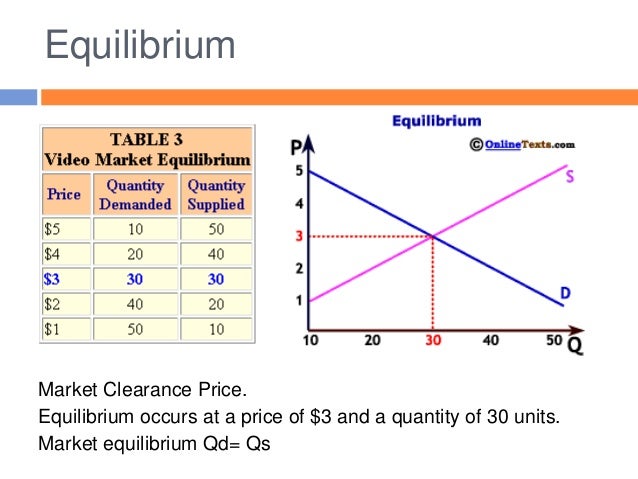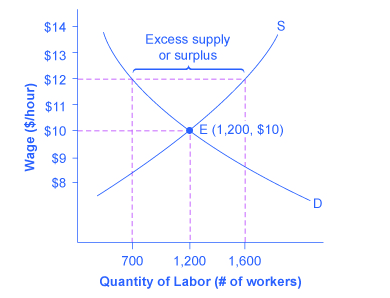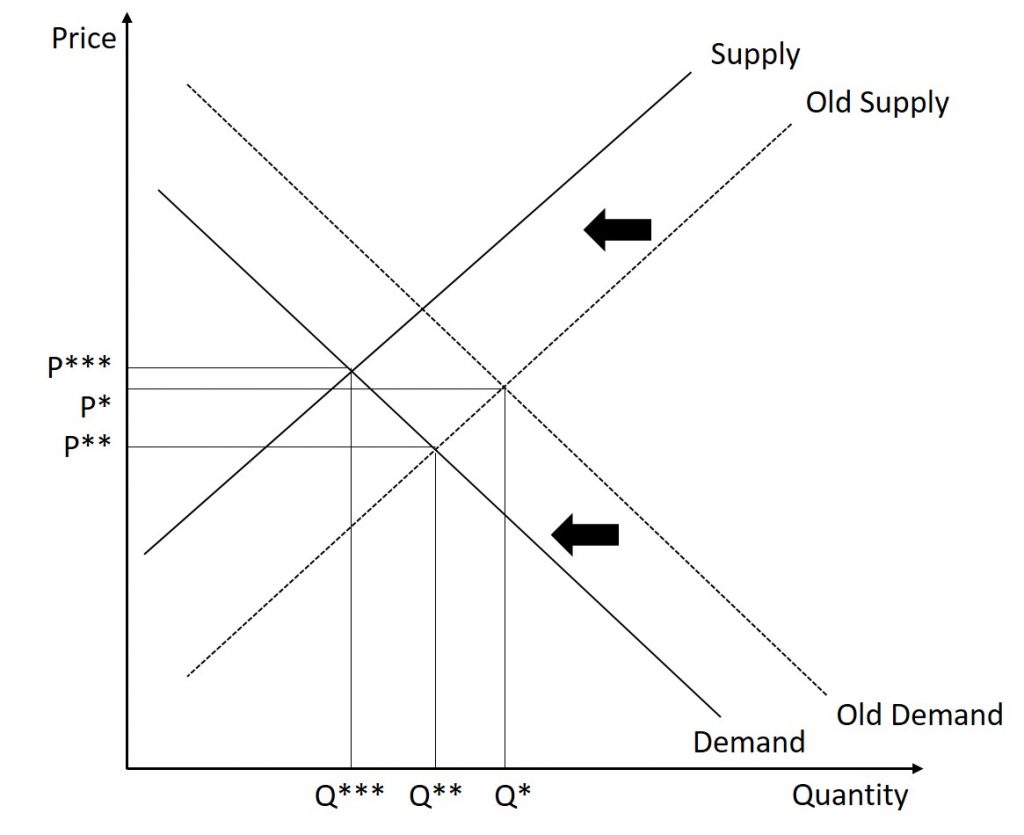How Does Price Floor Affect Equilibrium

B it results in a greater quanatity supplied than the quantity demanded otherwise known as a exceess supply.
How does price floor affect equilibrium. Price floors prevent a price from falling below a certain level. While they make staples affordable for consumers in. But the price floor p f blocks that communication between suppliers and consumers preventing them from responding to the surplus in a mutually appropriate way. Demanded and quantity supplied are equal.
If the price is below the equilibrium level the quantity demanded will exceed the quantity supplied so there will be a shortage. The equilibrium price commonly called the market price is the price where economic forces such as supply and demand are balanced and in the absence of external influences the values of economic variables will not change often described as the point at which quanti. When they are set above the market price then there is a possibility that there will be an excess supply or a surplus. Price floors price floors are only an issue when they are set above the equilibrium price since they have no effect if they are set below market clearing price.
A price ceiling is a type of price control usually government mandated that sets the maximum amount a seller can charge for a good or service. However price floor has some adverse effects on the market. A it results in a smaller quantity supplied than the quantity demanded otherwise known as a shortage. When a price floor is set above the equilibrium price quantity supplied will exceed quantity demanded and excess supply or surpluses will result.
A shortage means people want to buy more than firms are producing. Producers are better off as a result of the binding price floor if the higher price higher than equilibrium price makes up for the lower quantity sold. Suppliers can be worse off. How does a price floor set above the equilibrium price affect quantity demanded and quantity supplied.
If price floor is less than market equilibrium price then it has no impact on the economy. Price floor is enforced with an only intention of assisting producers. A price floor is a government or group imposed price control or limit on how low a price can be charged for a product good commodity or service. That will cause the price to rise.
Consumers are always worse off as a result of a binding price floor because they must pay more for a lower quantity. This mutual adjustment continues until the price reaches p where producer and consumer decisions are perfectly coordinated. Price floors and price ceilings often lead to unintended consequences. Price floors prevent a price from falling below a certain level.
A price floor must be higher than the equilibrium price in order to be effective. When government laws regulate prices instead of letting market forces determine prices it is known as price control.

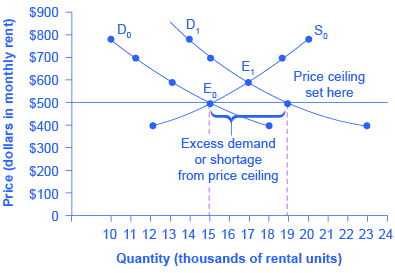




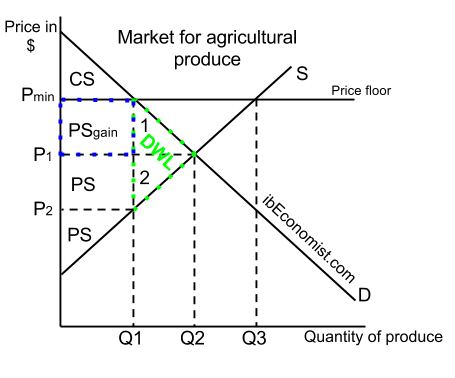







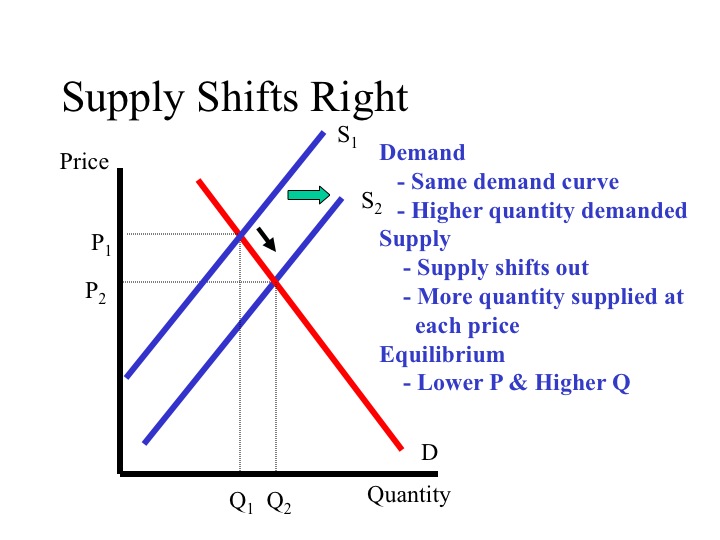
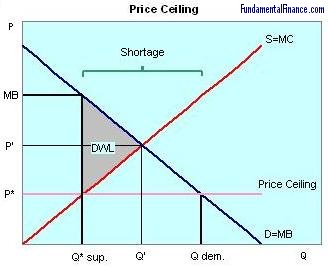
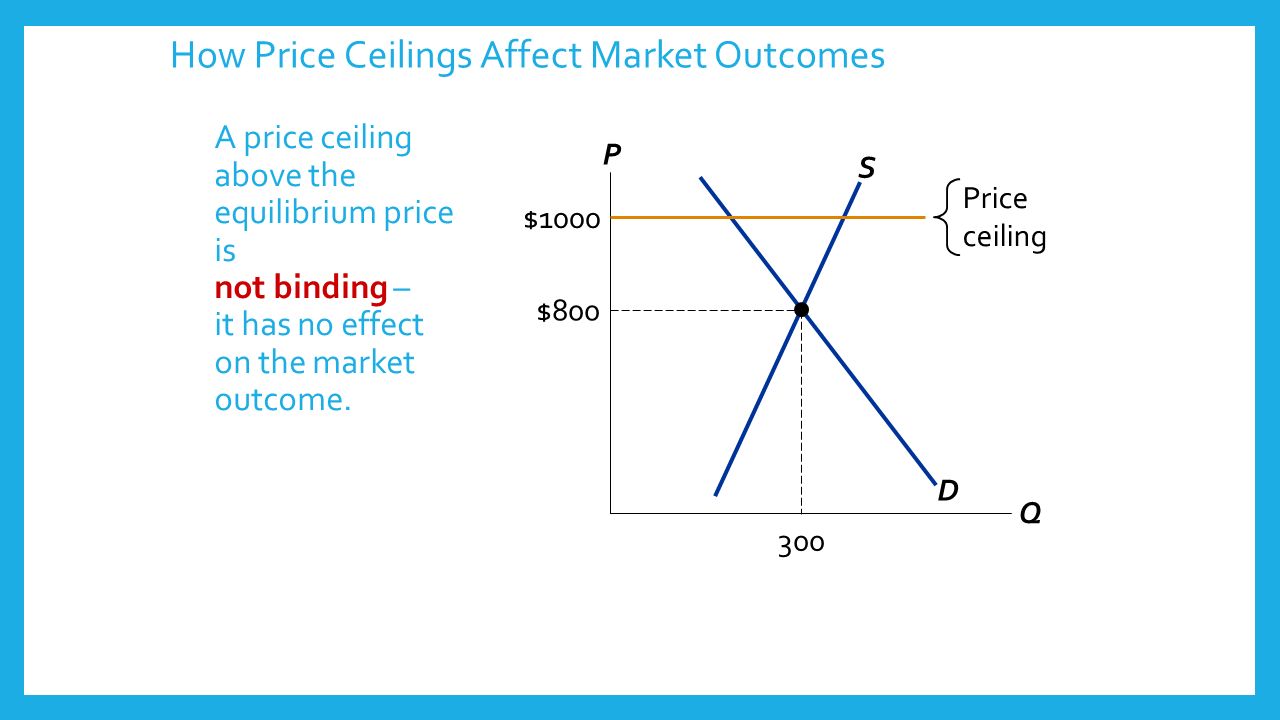
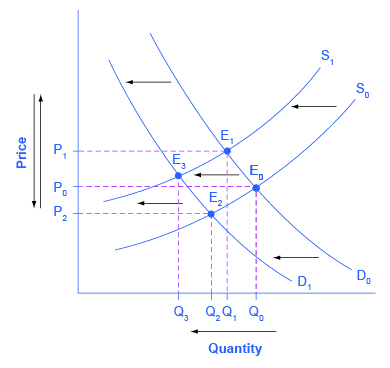

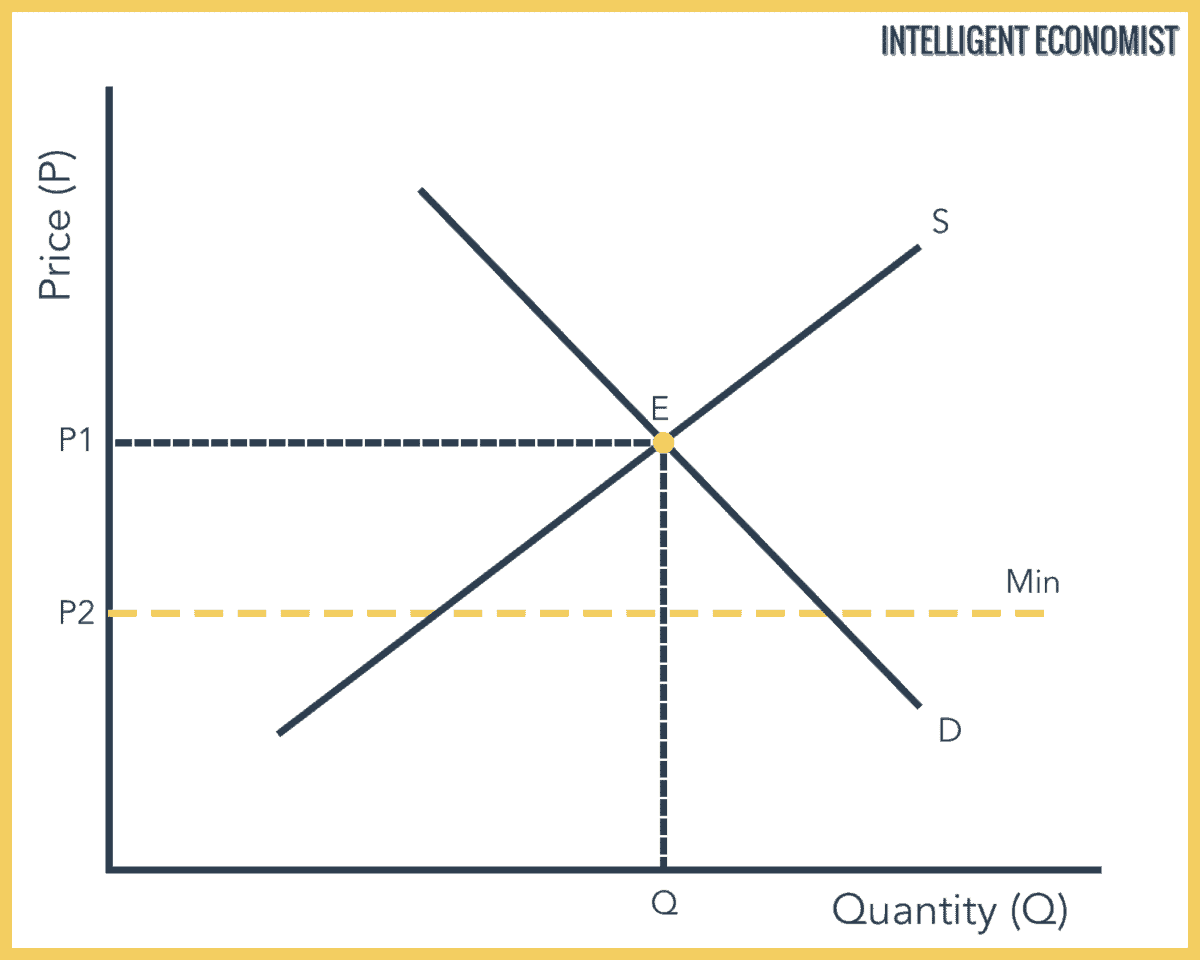
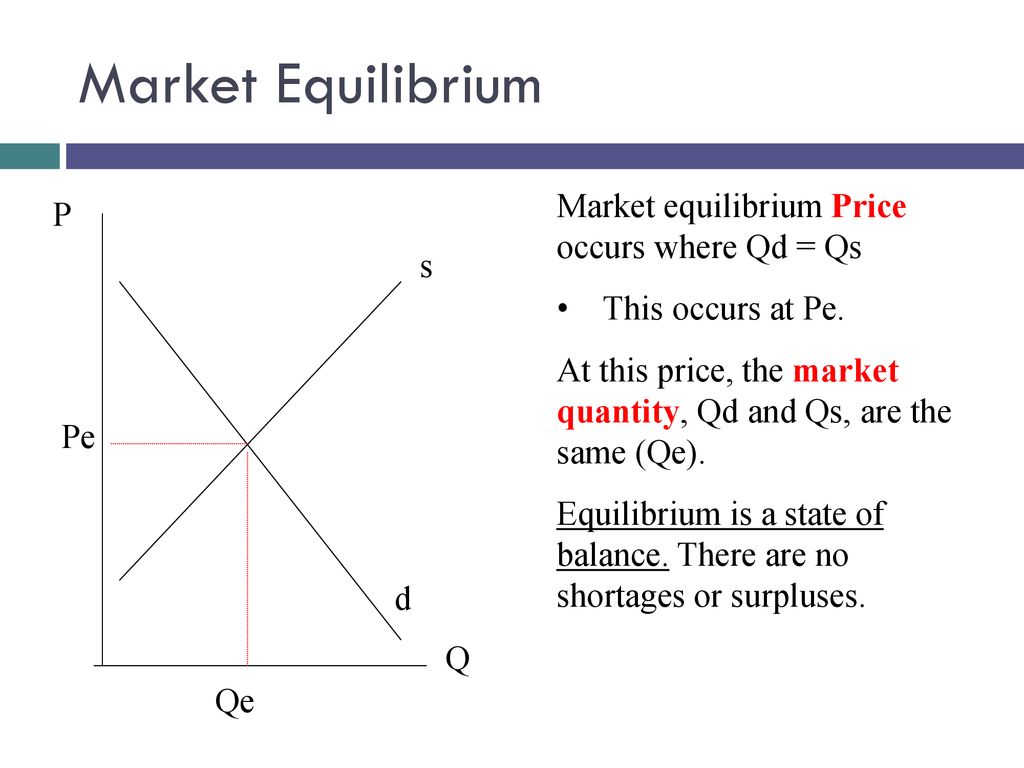


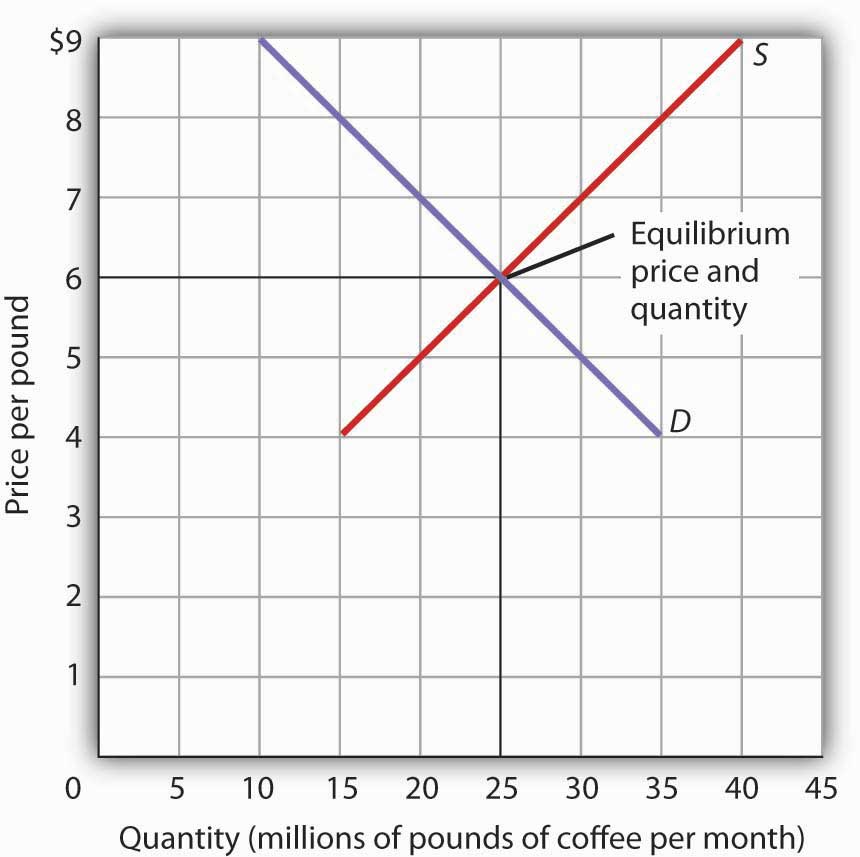




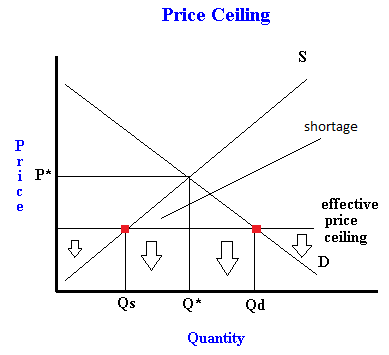
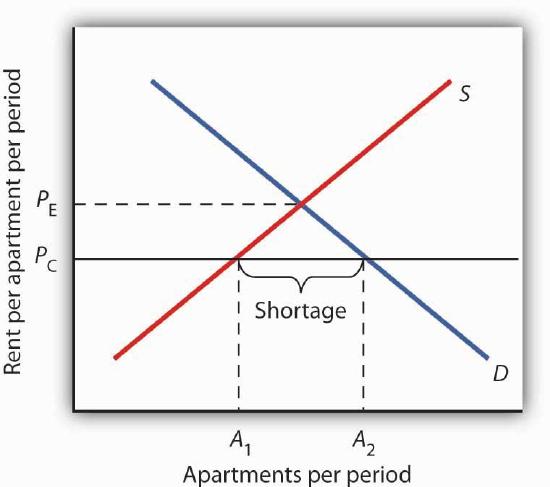
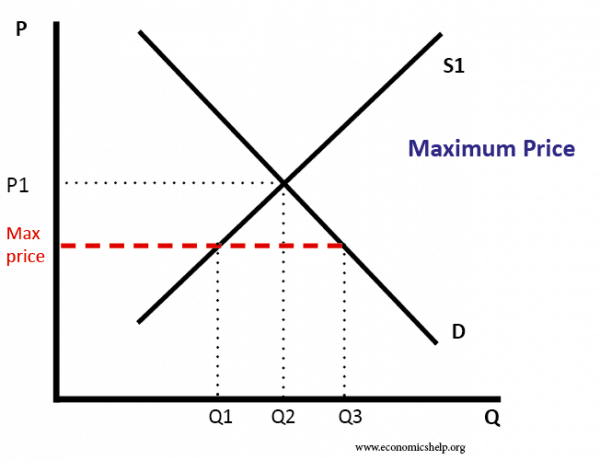


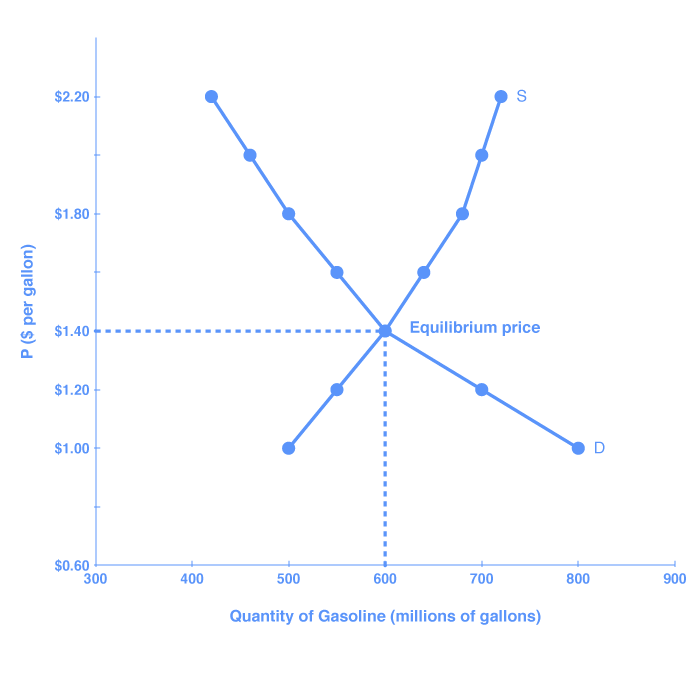






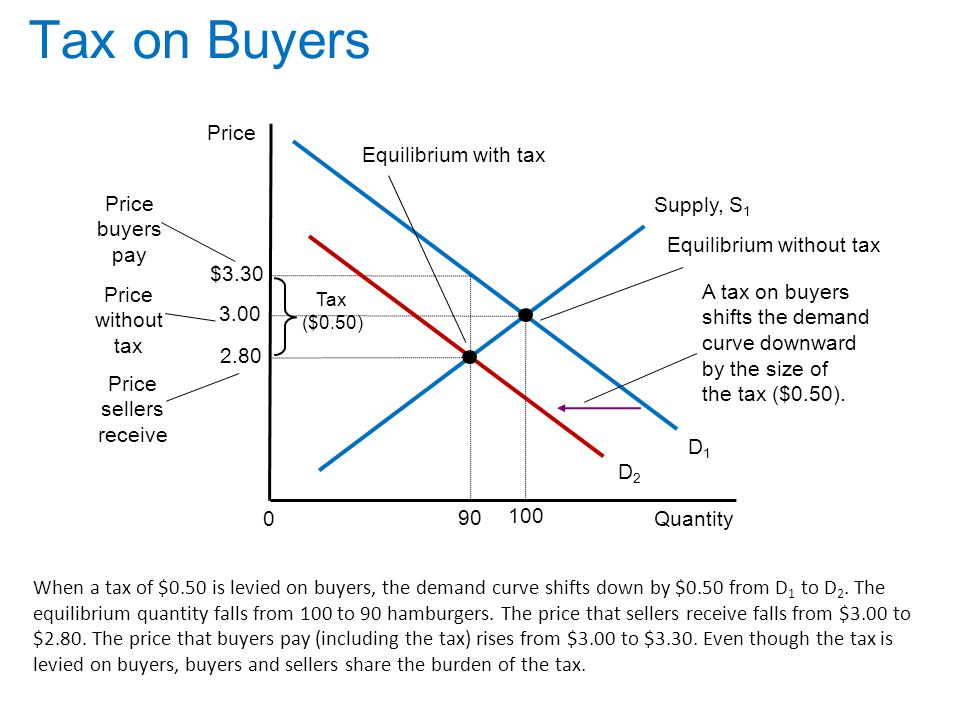

:max_bytes(150000):strip_icc()/WhyYouCantInfluenceGasPrices3-257334e47bc54cd7a449da9df90814af.png)
